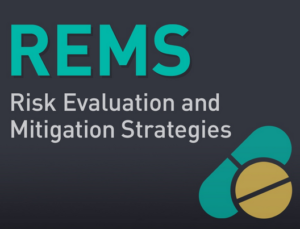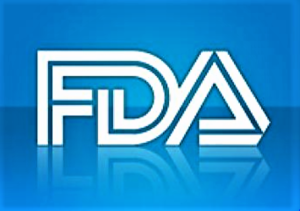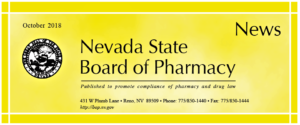- FDA issues draft guidance to ensure safety of compounded drugs (drugstorenews.com)
Today we’re updating some of our proposed policies related to these outsourcing facilities. Among our goals is to make it more feasible for compounding pharmacies to become outsourcing facilities...ottlieb said the FDA’s aim for this guidance is to recognize the differences in drug production between outsourcing facilities and conventional drug manufacturers. The guidance is intended to provide clarity on quality assurance, maintaining suitable facilities, sterility, stability testing, and beyond-use or expiration dates for products that don’t go through the FDA drug approval process...This revised draft guidance includes...revisions related to release testing, stability testing and beyond-use dating, as well as policies that differentiate between the production of sterile and non-sterile drug products...
- New REMS for Immediate-Release Opioids in Outpatient Settings – Training for Pharmacists and Nurses, Not Just Prescribers (ptcommunity.com)
The FDA has approved a final Opioid Analgesic Risk Evaluation and Mitigation Strategy (REMS) that includes several measures to help better communicate the serious risks about the use of opioid pain medications to patients and health care professionals. This expanded REMS, for the first time...
- ….applies to immediate-release (IR) opioid analgesics intended for use in an outpatient setting. The new REMS also applies to the extended-release and long-acting (ER/LA) opioid analgesics…
- ….training be made available to health care providers who are involved in the management of patients with pain (e.g., nurses and pharmacists), and not only to prescribers.
- ...education cover broader information about appropriate pain management, including alternatives to opioids for the treatment of pain.
- ...new product labeling containing information about the health care provider education available through the new REMS.
- ,,,the agency has approved the new FDA Opioid Analgesic REMS Education Blueprint for Health Care Providers Involved in the Treatment and Monitoring of Patients with Pain (Blueprint). This includes updated educational content.
- FDA confronts its limits in push on drug pricing (biopharmadive.com)
Legally, the agency has few levers to pull when it comes to addressing prices. But that hasn't stopped Commissioner Scott Gottlieb from taking a more spirited and vocal approach than past FDA chiefs. The effort comes as eye-popping price tags, some spurred by groundbreaking new treatments but others by manipulation of the drug pricing system, have prompted public and political opposition to rising drug costs...Gottlieb has aggressively used public statements to call out drugmakers for blocking or impeding market competition. And, under his leadership, the FDA has continued to ramp up approval of generic and biosimilar drugs, while pushing the boundaries of regulatory flexibility.
- Indirect effect..."Where the FDA does have authority to get involved is in how much, in what way, and how aggressively it approves drugs, or their generic or biosimilar competitors."...While it's an indirect effect, approving low-cost competitors more quickly can be a powerful force for lowering prices.
- Biosimilars showcase hurdles facing FDA...speeding competitors to market can only go so far if other forces block lower-cost rivals from reaching patients. To date, that's exactly what's played out with biosimilars...Gottlieb has expressed frustration that the FDA's steady increase in approving biosimilars hasn't resulted in greater savings. "Competition is, for the most part, anemic,"
- Naming and shaming...Gottlieb has made full use of his public platform to call out market "shenanigans" by drugmakers...Gottlieb received a lot of media coverage by attacking such practices as "regulatory gaming," and has since kept up pressure on drugmakers through public statements.
- Worth cooperating?...As Health and Human Services Secretary Alex Azar and Gottlieb continue to criticize pricing and anticompetitive practices, drugmakers are faced with a choice: ignore the growing chorus or cooperate.
- Bowing to Trump, Novartis Joins Pfizer in Freezing Drug Prices (nytimes.com)
Novartis...said...it would not raise prices on its products in the United States for the rest of 2018, joining Pfizer, which delayed its increases last week after President Trump singled out the company for criticism...Novartis’s chief executive, Vas Narasimhan, said during an earnings call with investors that the company had made the decision in June, amid escalating outrage over high drug prices. “We thought that was prudent, given the dynamic environment we’re currently in,” he said...Pharmaceutical companies are scrambling to stem the groundswell of criticism over steep drug pricing, as elected officials and the Trump administration have taken up the issue...
- Advancing Toward the Goal of Global Approval for Generic Drugs: FDA Proposes Critical First Steps to Harmonize the Global Scientific and Technical Standards for Generic Drugs (fda.gov)
...FDA launched a Drug Competition Action Plan that focuses on three key areas designed to facilitate more generic competition, promote patient access, and improve the economics of developing generic medicines...While we’ve made substantial progress in fostering more competition by resolving obstacles that can make it difficult to win approval of generic versions of certain complex drugs, increasing the speed of generic approvals, and closing down ways that branded companies game the system to prolong drug monopolies, there’s still more work to be done...So we’re opening up some new policy fronts when it comes to our Drug Competition Action Plan. And we’re re-launching that plan for 2019 with some additional initiatives. Chief among them is a new effort that FDA has proposed to the International Council for Harmonization of Technical Requirements for Pharmaceuticals for Human Use (ICH), a key international body comprised of other regulatory authorities and the pharmaceutical industry: The pursuit of common global development standards for generic drugs...The ultimate goal of this global harmonization of scientific and technical requirements would be the attainment of a single global generic drug development program that can support simultaneous regulatory filings across multiple markets. Harmonization of these requirements is foundational to achieving a future goal of enabling global approval for high quality generic drugs.
- FDA Previews Patient-focused Report on Opioid Use Disorder (raps.org)
The US Food and Drug Administration offered a sneak peek...into a new report on the impact of opioid use disorder (OUD) from the perspectives of about 155 patients...Preliminary results highlighted...offer insights into the impact of OUD on patients’ day-to-day lives to aid industry and FDA staff in the push for patient-focused drug development...The input can serve FDA and others in identifying specific areas of unmet needs for patients with OUD, support advice on medical product development programs and facilitate greater appropriate use of approved medications and how these are evaluated...The results highlight the impacts of OUD, a sensation called “craving,” treatment goals, as well as benefits and downsides of and the current barriers to medication-assisted treatment (MAT)...Benefits to MAT that patients reported include reducing the “euphoric rush,” as well as being able to “arrest the cravings and compulsiveness” and regain control of their life. In contrast, downsides relate to “intolerable or bothersome” side effects and the need to stay on MAT long-term. MAT also reportedly fails to address underlying issues, such as anxiety and pain...On challenges to MAT, participants cited a lack of access due to long wait times to obtain medication and strict requirements to remain in a program, among other issues. They also cited unpleasant experiences at MAT facilities, stigma, the intensity of withdrawals, addressing comorbid pain or mental health needs and a self-recognized need to come to terms with OUD.
- Brexit Guidance: MHRA Outlines What to Expect (raps.org)
The UK’s Medicines & Healthcare products Regulatory Agency...explained what pharmaceutical and medical device companies can expect during the period that the Brexit agreement is implemented...During the implementation period, which will end in December 2020, pharmaceutical firms will be able to continue UK batch release testing and Qualified Person certification in the UK, which will be recognized by the EU and vice versa, MHRA said...But one of the setbacks is that for medicines, the UK will not have voting rights in EMA and EU committees during the implementation period, MHRA said...“Marketing authorisation holders and qualified persons for pharmacovigilance will continue to be able to be based in the UK and access EU markets. There will be continued mutual recognition of manufacturing and distribution licences, as well as associated inspections such as good manufacturing practice (GMP),” the regulator added.
- Nevada State Board of Pharmacy – Newsletter – October 2018 (bop.nv.gov)AB 474 (leg.state.nv.us)LCB File No. R047-18 (leg.state.nv.us)
- Assembly Bill 474
- National Pharmacy Compliance News
- FDA Issues Final Guidance Policy on Outsourcing Facilities
- EU-US Mutual Recognition Agreement Now Operational Between FDA and 12 Member States
- US Surgeon General Advisory Urges More Individuals to Carry Naloxone
- Expanding Pharmacists’ Scope of Practice Linked to Improved Cardiovascular Outcomes
- Pharmacists Are Critical to Drug Supply Chain Integrity, States FIP
- Emergency Department Visits for Opioid Overdoses Rose 30%
- FDA’s continuing use of ‘black box’ for antidepressants ignores the harms of this warning (statnews.com)
The Food and Drug Administration’s “black box” warnings and advisories give important safety information about drugs. But they can sometimes go too far and harm more people than they help...Take the FDA’s highly publicized warnings that taking antidepressants increases the risk of suicidality...among children, adolescents, and young adults. We have evidence, as do many others, that these warnings have decreased youths’ access to mental health care and increased suicide attempts...In October 2004, the FDA required a so-called “black box warning” of this risk to be printed on the labels of all antidepressant drugs. It was implemented in January 2005. Two years later, the FDA extended the same warning to include young adults, again based on industry studies...There’s no question that antidepressants can cause harm if used inappropriately. But the FDA failed to recognize — and still won’t acknowledge — that the harms of its public advisories and black box warning on antidepressants for young people more than outweigh the benefits...
- Swiss, German drugmakers join U.S. price freeze (reuters.com)
European drugmakers Roche, Bayer and Merck KGaA became the latest companies to freeze prices in the United States for the rest of 2018 following criticism by President Donald Trump over the cost of medicine...Roche did boost U.S. prices for nine key drugs by an average of 3 percent on July 1, but said it would hold off additional increases as discussions with the Trump administration continue over a longer-term solution to containing healthcare costs...The European announcements on Friday follow similar moves from Novartis, Pfizer and U.S. drugmaker Merck.










